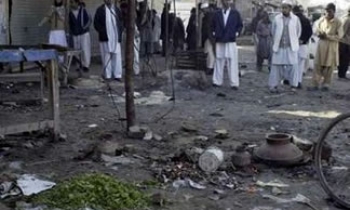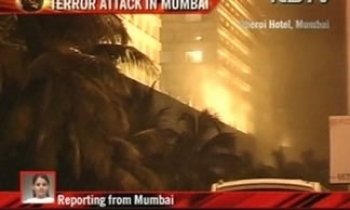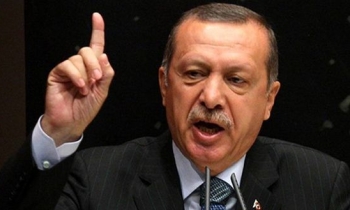PARIS -- Fears are growing that the spasm of anti-European protests across the Muslim world could evolve into a more dangerous confrontation unless political and religious leaders take unified action.
Extremists have already capitalized on public anger in Muslim countries over the widespread publication, in Europe and elsewhere, of caricatures of Islam's Prophet Mohammed, including one with a turban resembling a bomb.
At least seven people were killed in demonstrations during the past two days and European embassies in Syria, Iran and beyond were ransacked, burned and attacked by rioters. The violent protests have prompted a mixed response from Islamic preachers who have called on Muslims to defend their faith while also admonishing them to stay calm.
The destructiveness of the protests during the weekend and yesterday seems to have stiffened the resolve of European governments that have wavered between expressions of regret over the offence caused by the cartoons and righteous defence of press freedom.
Yesterday, French President Jacques Chirac pledged "solidarity" with Denmark, which has borne the brunt of Muslim anger because the drawings were first published by a Danish newspaper.
The European Commission in Brussels, in a statement by a spokesman, said no real or perceived grievance justifies acts of violence.
But the European leaders, unable in the past to come up with a common foreign or defence policy, appear unwilling or unable to try to forge a unified response.
"They are in an awkward position," said Denis Bauchard, an analyst with the French Institute of International Relations. "It's not acceptable in Western countries to sanction anyone for blasphemy. But at the same time, these were provocative images that have also been criticized by European Christian and Jewish religious figures."
Protests in some Muslim countries have already incorporated broader grievances against the West while feeding Western uncertainty.
In Iran, several hundred men threw rocks, eggs and firecrackers at the embassy of Austria, which holds the rotating presidency of the European Union. According to reports, the attackers were members of the Basiji, the militia of the hard-line clergy. They denounced the caricatures as blasphemy and also protested against Western efforts to stop Iran's nuclear program.
In Beirut, demonstrators attacked a church during protests against the publication of the cartoons. Lebanon's government apologized to Denmark for damage to its consulate. Later, a group of political parties trying to end Syrian influence in Lebanon said the riots were stage-managed by Syria, which has been under intense European pressure over accusations that it ordered the assassination last year of former Lebanese prime minister Rafiq Hariri.
Middle East analysts have said at least some of the demonstrations against the caricatures during the past week have been manipulated by unpopular leaders angling for credibility by riding the wave of popular rage. Other Arab governments that have had problems with religious militants have either permitted no protests, like Saudi Arabia, or only small demonstrations to let off steam, as in Egypt.
If Muslim governments and religious leaders decide to impose order and demand calm, the furor over the cartoons could die out on its own, according to Malek Chabel, a French anthropologist and author of a book called Islam and Reason.
"But if the fundamentalists and the terror cells intervene," he said, "the movement will continue."
The attacks on European offices in the Gaza Strip last week have also raised European concerns that the cartoon controversy could poison future relations with Palestinians, already unsettled by the recent legislative election victory of Hamas, the Islamic fundamentalist group.
The protests and attacks were conducted both by Hamas and its rivals from the secular Fatah movement, with each side trying to outdo the other in its religious commitment to defending the Prophet.
The European Union has been the single biggest donor to the Palestinian Authority. But its influence in Palestinian-Israeli conflict has diminished over the past years and could deteriorate further as a result of the cartoon controversy.
"It may affect the image of Norway and Denmark, but I don't think it will really affect our political profile in the Middle East or our role in relations between Palestinians and Israelis," said Sverre Lodgaard, director of the Norwegian Institute of International Affairs. "Of course, we don't have much of a role today."








